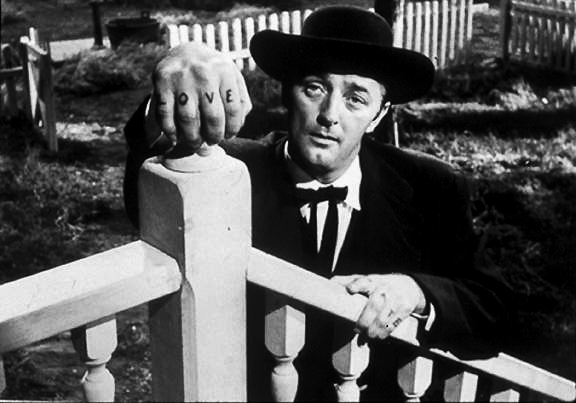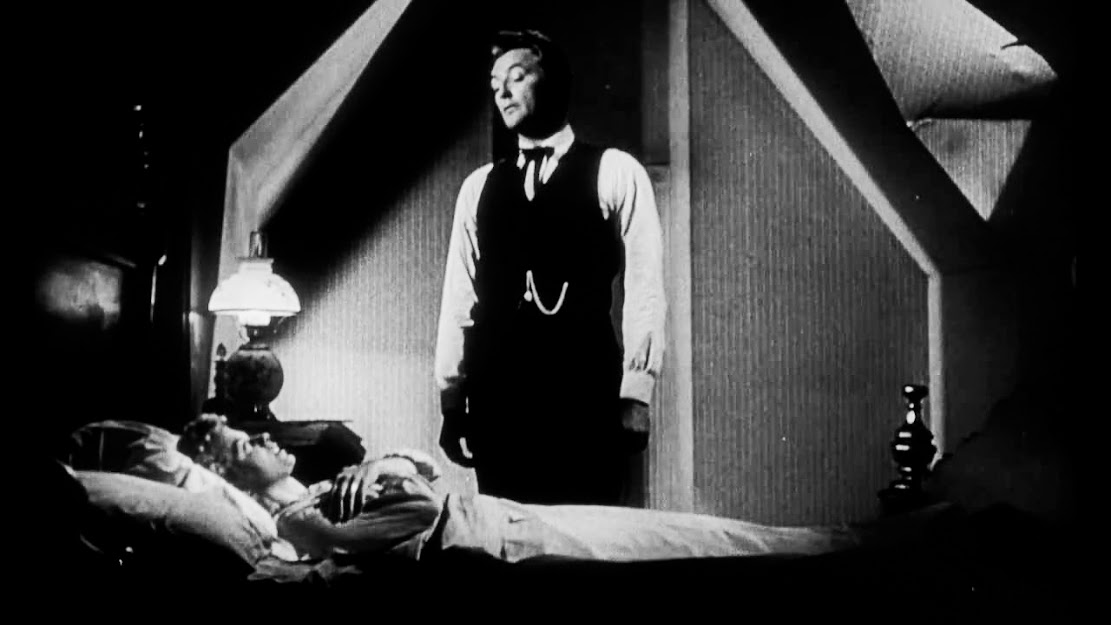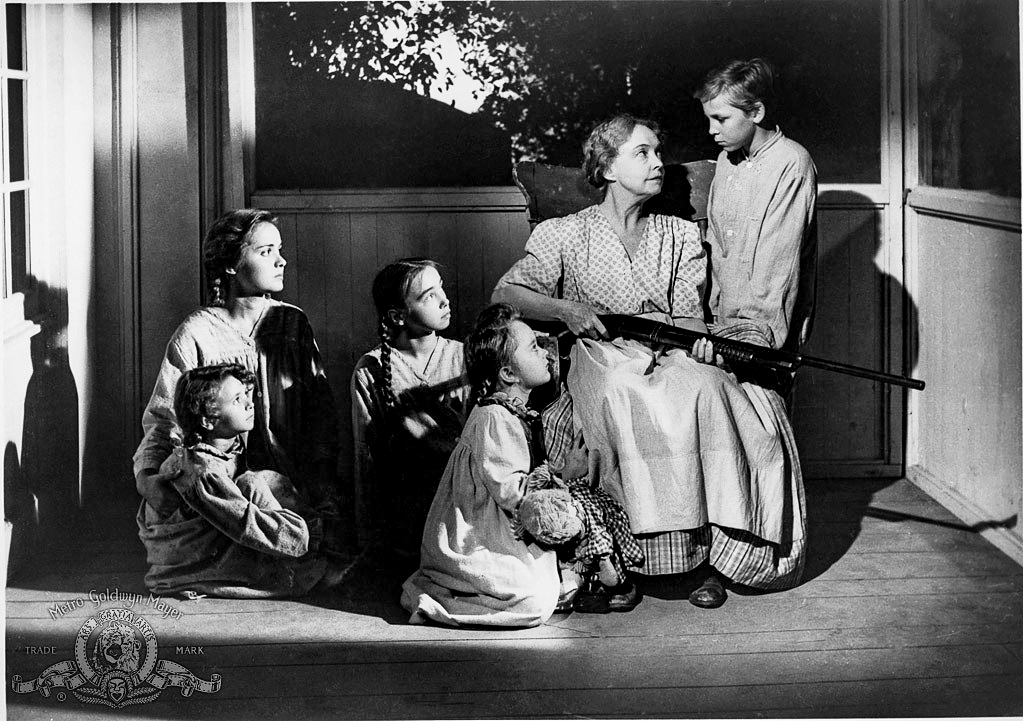"Charles Laughton's "The Night of the Hunter” (1955) is one of the greatest of all American films, but has never received the attention it deserves because of its lack of the proper trappings. Many “great movies” are by great directors, but Laughton directed only this one film, which was a critical and commercial failure long overshadowed by his acting career. Many great movies use actors who come draped in respectability and prestige, but Robert Mitchum has always been a raffish outsider. And many great movies are realistic, but “Night of the Hunter” is an expressionistic oddity, telling its chilling story through visual fantasy. People don't know how to categorize it, so they leave it off their lists."
Everybody knows the Mitchum character, the sinister “Reverend” Harry Powell. Even those who haven't seen the movie have heard about the knuckles of his two hands, and how one has the letters H-A-T-E tattooed on them, and the other the letters L-O-V-E. Bruce Springsteen drew on those images in his song "Cautious Man”.
But does this familiarity give "The Night of the Hunter” the recognition it deserves? I don't think so because those famous trademarks distract from its real accomplishment. It is one of the most frightening of movies, with one of the most unforgettable of villains, and on both of those scores it holds up as well after four decades.
The story, somewhat rearranged: In a prison cell, Harry Powell discovers the secret of a condemned man (Peter Graves), who has hidden $10,000 somewhere around his house. After being released from prison, Powell seeks out the man's widow, Willa Harper (Shelley Winters), and two children, John (Billy Chapin) and the owl-faced Pearl (Sally Jane Bruce). They know where the money is, but don't trust the “preacher.” But their mother buys his con game and marries him, leading to a tortured wedding night inside a high-gabled bedroom that looks a cross between a chapel and a crypt.
Charles Laughton showed here that he had an original eye, and a taste for material that stretched the conventions of the movies. It is risky to combine horror and humor, and foolhardy to approach them through expressionism. For his first film, Laughton made a film like no other before or since, and with such confidence it seemed to draw on a lifetime of work. Critics were baffled by it, the public rejected it, and the studio had a much more expensive Mitchum picture (“Not as a Stranger”) it wanted to promote instead. But nobody who has seen "The Night of the Hunter” has forgotten it, or Mitchum's voice coiling down those basement stairs: "Chillll . . . dren?”
Robert Mitchum is a preaching paterfamilias from hell, and Charles Laughton's complex 1955 classic thoroughly deserves the turnaround in its reputation over the years
I come not with peace, but with a sword," says Robert Mitchum's psychopathic bogus preacher, brandishing a switchblade that at moments of extreme sexual excitement and disgust will poke out of his trouser-pocket, tearing the material. His performance in Charles Laughton's The Night of the Hunter (1955) – now on re-release – is startlingly stiff-necked and straight backed, with a mannered theatrical baritone, a change from Mitchum's usual rangy coolness.
















.jpg)